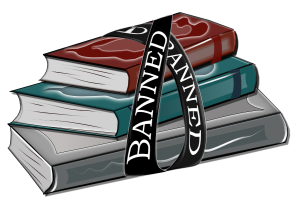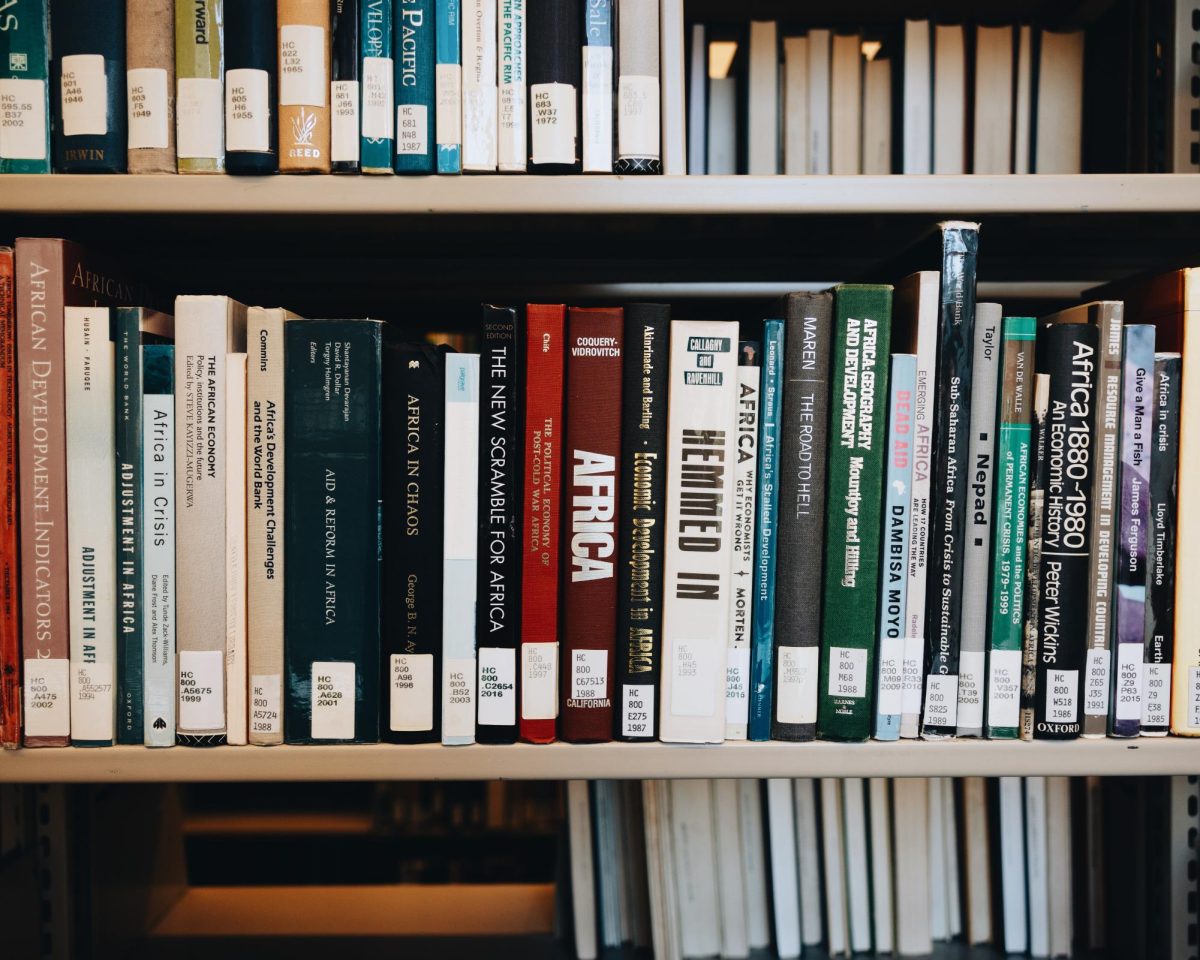 Here at Seattle University, the Leadership Committee on Intersectionality and Justice (LCIJ) through the College of Arts and Sciences has incorporated bringing awareness to titles and authors of banned books.
Here at Seattle University, the Leadership Committee on Intersectionality and Justice (LCIJ) through the College of Arts and Sciences has incorporated bringing awareness to titles and authors of banned books.
Recently, book bans have been a topic of controversy in American society. People constantly debate the acceptable material in literature in relation to freedom of expression, free speech, morality and virtues. Over the last two years, book banning has been on the rise and increased significantly. From 2023-2024, 10,046 books were banned in the U.S.
The LCIJ, a longstanding committee of over 10 years, is made up of staff, faculty and most recently students, whose mission is to constantly improve the institutional structure regarding issues of immigration, race, religious bigotry and much more. Working specifically within the College of Arts and Sciences, the committee works to ensure the integration of these values into course curriculums as well as just generally creating a more inclusive environment.
Every year the committee creates a new agenda of issues they would like to tackle, document and share. This year the committee acknowledged that book bannings have been increasingly frequent in recent years, though America’s history reflects that banning books is not a new endeavor.
As part of the current agenda, the committee has a “banned books of the week” email that goes out weekly to faculty and students in the College of Arts and Sciences. Every week the email includes two book titles, one fiction and one nonfiction that, somewhere in the U.S., is considered a “banned” or “censored book” whether that’s at a public library, public school, etc. The American Library Association and PEN America are two nonpartisan organizations that record and track bans on books in America and it is through these organizations that the LCIJ chooses book titles to share.
Joseph DeFilippis is an associate professor at Seattle U as well as the co-chair for the LCIJ. He has long-standing roots in community work and shared his thoughts on the LCIJ’s banned books of the week initiative.
“We’ve seen this conflation of actors across the country working together to get books banned in schools so that young people can’t access them and in public libraries so that even adults can’t access them,” DeFilippis said.
DeFilippis expressed the connection he saw between larger culture wars occurring specifically in the U.S. following Obama’s presidency and books becoming banned or censored. The larger culture wars have been campaigns negatively going after Diversity, Equity, Inclusion (DEI) and critical race theory while most books being censored are centered around the same diverse topics of inclusion, anti-government messages, transgender journeys, etc.
Furthermore speaking to the LCIJ’s initiative, DeFilippis discussed how the committee wanted to highlight books such as classics that are winners of the Pulitzer Prize or Tony Award as well as books by brand new authors whose voices are unable to reach audiences because they are being silenced.
Julius Moss, the second co-chair for the LCIJ, wrote to The Spectator in an email that history is a cycle that people need to learn from; the banning of books is in direct conflict with that idea.
“By not having access to inclusive writings and diversity of thought, our collective destination is conformity and obedience, both originating from ignorance,” Moss wrote.
Moss further wrote on the impact of the LCIJ’s newsletter.
“Grassroots communication tools like the newsletter allow you to connect directly with people. The message is directed to the masses and allows them to form their own opinions about the information rather than being encouraged to take one side or the other based solely on second-hand interpretations crafted by others,” Moss said.
Abby Wells is a fourth-year psychology major at Seattle U. Wells has researched and monitored the legislation across states to ban literature in public schools over the years.
“I wrote a script and did a podcast about banned books. I talked about the historical context of banned books, laws, and specific books that were being banned. I talked about ‘To Kill A Mockingbird’ and other Shakespeare works that were being banned in high school,” Wells said.
Wells expressed her sentiments on banning books in the U.S. specifically, the precedent that it will set for authors and artistic expression.
“I don’t like banning books, I feel like it infringes on freedom of speech and the right to publish,” Wells said.
Wells then described the process of banning books across the nation.
“The process of banning books varies, the most present group is the Moms For Liberty Group, which is a conservative party that has been trying to ban books that they deem to be radical on topics that include race, sexuality and gender. They are the same people who are trying to keep certain parts of history redacted,” Wells said.
Wells concluded that banning books has had a devastating impact on the literature scene for minority authors and writers.
“Authors of color are banned three times more than white authors, also queer authors or topics of queerness. All of those topics are considered hot topics in the presence of literature,” Wells said.
Darozyl Touch is the assistant dean for Diversity, Equity, Inclusion and Justice at the College of Arts and Sciences here at Seattle U as well as the dean’s office liaison for the LCIJ.
In an email to The Spectator, Touch emphasized the importance of educator’s positions to uplift marginalized voices. For reference, the dean chose to include an excerpt from the faculty handbook.
“Seattle University is committed to fostering an environment of academic freedom, intellectual curiosity, and academic excellence… Upholding academic freedom and providing opportunities for free expression and inquiry is fundamental to the University’s role as a Jesuit and Catholic institution,” Touch said.
Commenting on this, Touch stressed that the current tensions are stemming from a transition of political power and an uprising in censorship.
“The repression of information is a tenet of authoritarianism designed to miseducate and perpetuate false and harmful narratives that become normalized in our society. It is precisely the literature, the art, the music, and multidisciplinary expressions of these truths that are being repressed, that allow us to think critically about the world and interrogate fact from propaganda. As a college that houses the social sciences, humanities, and arts, we will continue to advocate for and uplift these truths,” Touch wrote.
This effort to highlight the censorship of books and authors by the LCIJ is a focus on the current battle against the voice of literature but also freedom of expression for writers. The LCIJ is a leading example of institutions using their position to allow intellectual minds to grow, nourish our values and combat the fight against creative freedom in academia.









Joe Martin
Feb 13, 2025 at 5:21 pm
Thanks to the critical work and advocacy on Seattle U’s LCIJ on behalf of academic and intellectual freedom. Current efforts to ban certain books are a part of an overall ultra-conservative and right wing strategy to intimidate and subdue access to ideas and themes that challenge and inspire informed reflection and understanding of a wealth of topics. Especially in the era wherein so many adults don’t read much of anything–never mind serious books that open readers to new horizons that educate and spark the imagination–all efforts to nurture an interest in reading and foster an appreciation for the written word are vital to the health, well being and future of our society.